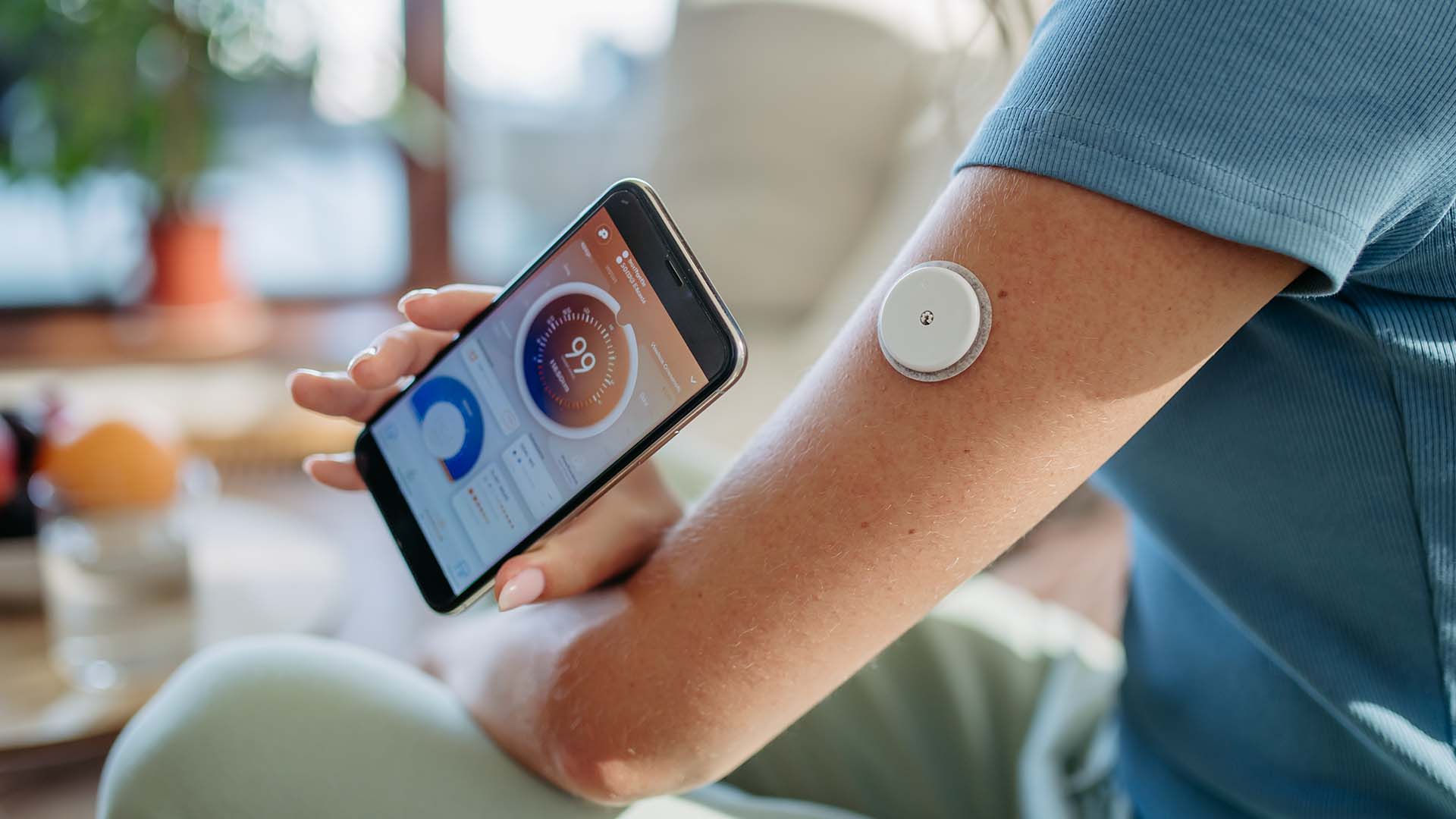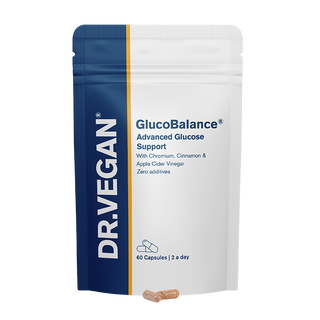Should you be worried about blood glucose levels?

The rising popularity of blood glucose monitors (CGMs) and expensive monthly programmes that claim to 'personalise' your diet have led to more and more people asking 'Should I be worried about managing glucose spikes' and 'Should I use a blood glucose monitor'? Is this just another fad, and are people wasting their money on programmes claiming to improve your wellbeing through monitoring blood glucose levels?
The simple answer is yes, it is largely just another money-spinning fad for a few and, unless you have diabetes, you shouldn't need to be monitoring your blood glucose levels. If you're generally healthy, with a healthy and varied diet, blood sugar spikes are normal. The primary reason diabetics need blood glucose monitors is to prevent or pick up on low blood sugar levels. Blood sugar 'highs' are a normal part of a healthy, balanced and varied diet and, unfortunately, results from blood glucose monitors are commonly misinterpreted, leading people to focus on the wrong things. Nutritional therapist, Isabelle Nunn (MPharm, Bant, DipNT), who also practised as pharmacist for 10 years, answers the most common questions about blood sugar levels, blood glucose monitors and what is more important to focus on.
What are blood sugar levels?
Your blood sugar levels are simply the measurement of glucose in your blood, which is influenced by the foods you eat at every meal. Our body releases insulin to breakdown the sugar from the foods we eat into glucose before it enters the blood stream, which is then used by the body for energy and support to our vital organs. You may also be interested in 'What is insulin resistance?'.
What's your diet missing? Create your free Diet Profile and find out.
While highly unhealthy processed foods and protein powders, such as baked goods, biscuits, cakes, sugary drinks, orange juice, and green powder shakes can all cause unhealthy blood sugar highs, very healthy foods can also cause natural highs in blood sugar, which are nothing to be concerned about. Fruits including cherries, grapes, bananas and oranges, vegetables including carrots, peas, beets and potatoes, all contain high levels of naturally occurring sugars which the body converts into energy. These foods, alongside others such as wholegrain bread and pasta, also contain valuable vitamins, minerals, fibre and complex carbohydrates which are essential for the body and mind. So if you avoid them based purely on a concern about your blood sugar, you will be missing out on vital nutrients.
Why do we need to support our blood sugar levels?
Blood sugar levels can affect processes throughout our whole body, including energy levels, our ability to focus and concentrate, maintaining a healthy weight, cravings, our stress hormones (adrenaline and cortisol), and they affect our sleep. Blood sugar fluctuations can also lead to hormonal imbalances, which can lead to PMS symptoms, PCOS or even fertility issues. If blood sugar levels become high for a consistent period of time, this could indicate a serious health concern in type 2 diabetes, which is often caused by poor diet and a lack of exercise.
Diabetes itself is a major global health problem. In 2013, the global prevalence of diabetes was estimated at 382 million and by 2035, the number is expected to reach 592 million. Over time, diabetes can cause damage to the kidneys, heart, eyes and nerves. Diabetes is a major cause of blindness, kidney failure, heart attacks, stroke and lower limb amputations.

Prevalence of diabetes
According to Diabetes UK, the number of people with diabetes has topped 5 million for the first time, with type 2 diabetes becoming increasingly common among those under the age of 40. Those under the age of 40 are unfortunately known to have more severe and acute effects from diabetes. 90% of diagnoses are generally type 2 diabetes, around 8% of diagnoses are type 1 diabetes (which is also known as 'insulin dependant diabetes', caused by the body not producing the correct amount of insulin), and other forms of diabetes make up the remaining 2%.
The current statistics are alarming and it is important to maintain healthy and stable blood sugar levels through a healthy and balanced diet. Discover the '10 symptoms of diabetes to look out for'.
What are blood glucose monitors?
Continuous glucose monitors (CGMs) are usually placed on the arm and they use an algorithm that predicts blood sugar levels. They don't actually sample the blood; instead they sample the interstitial fluid that surrounds the body’s cells. Interstitial fluid carries nutrients received from the blood, which include glucose, making it a fairly reliable indication of blood sugar levels, but it does not have the exact same amount as the blood.
When CGMs give a new glucose measurement, it shows what the blood glucose was like a few minutes ago. This is because it takes some time for the glucose in our blood capillaries to filter into the interstitial fluid. So there are some 'inaccuracies' between the CGM and the body and other factors can come into play, causing blood sugar levels to change rapidly.
Should I wear a blood glucose monitor?
CGMs are generally available on the NHS for type 1 diabetics in order to regularly monitor blood glucose levels. You are also recommended to use one if you have a family history of diabetes, are borderline diabetic, or already diagnosed with diabetes (including type 2). However, it is recommended that these should be used in addition to a healthy lifestyle and a healthy, balanced diet, and not be seen as a treatment or cure.
However, it has become a trend endorsed by brands and celebrities, promising personalised health readings and a better understanding of foods and how they impact your overall health and in particular weight.
Whilst this may sound great, unfortunately such programmes cause individuals to obsess over their readings which can really impact their relationship with food. These programmes fail to mention that blood glucose spikes aren't inherently bad and they don't cause the health concerns alone. What is important is not a blood sugar spike itself, but how your body's responds to higher blood sugar, and if your body can efficiently deal with the glucose. If your body clears excess glucose effectively, there is no reason to be concerned. If your body doesn't, and you show symptoms of 'glucose intolerance', including feeling thirsty, frequent urination, fatigue, feeling hungry, then you should visit your GP, and not rely on a CGM.
In addition to diet, there are many more factors that can impact our blood sugar levels and associated health concerns, which are often ignored. The most important of these are regular exercise and ensuring quality sleep.
It is also important to remember that CGMs do not take into consideration the whole picture of what are considered 'normal blood glucose levels'. Unfortunately CGMs typically set at a narrow range of what is considered a low or high blood glucose level, which leads to unnecessary concern among participants. The accepted ranges of 'normal blood glucose levels', and the highs and lows before and after meals, are much higher than what CGMs say is normal. As a result, consumers and participants are frightened into thinking their blood glucose levels are too high after meals, when in fact they're normal. Natural plant compounds and sugars in a meal, including the vitamins, minerals, and the dietary fibre, can all have much more positive impacts on health regardless of their impact on blood sugar.
Preventing high blood sugar
The most important and effective way to preventing consistently high blood sugar, and avoiding health issues through blood sugar, is through a healthy lifestyle, having a well-balanced and nutritious diet, along with being physically active (and quitting smoking).
Supplements with key nutrients and botanicals can help support you on your journey. GlucoBalance® is an advanced formula for managing blood sugar and a healthy metabolism, regulating insulin function and supporting daily energy.
What should you be monitoring?
The most important thing to monitor is that meals are nutrient-dense, balanced, contain protein, and have lots of fibre. Reduce intake of refined flours, and avoid high sugar and sweeteners. Sweeteners in particular have been shown to be a huge health concern as announced by the WHO. You may be interested in reading 'Is sugar actually that bad for you?'.
Discover our range of award-winning vegan supplements and probiotics.
You may also enjoy reading:
- Why the hype about Apple Cider Vinegar?
- Is oat milk good for diabetes?
- Ultra-processed foods: dangers & how to avoid them
- Does sperm impact the risk of diabetes?
References
- World Health Organisation
- Diabetes UK
- NHS
- American Diabetes Association
- Global health burden of diabetes
Want to hear more from our nutritionists? Sign up to our email newsletter for insights and exclusive offers:




















